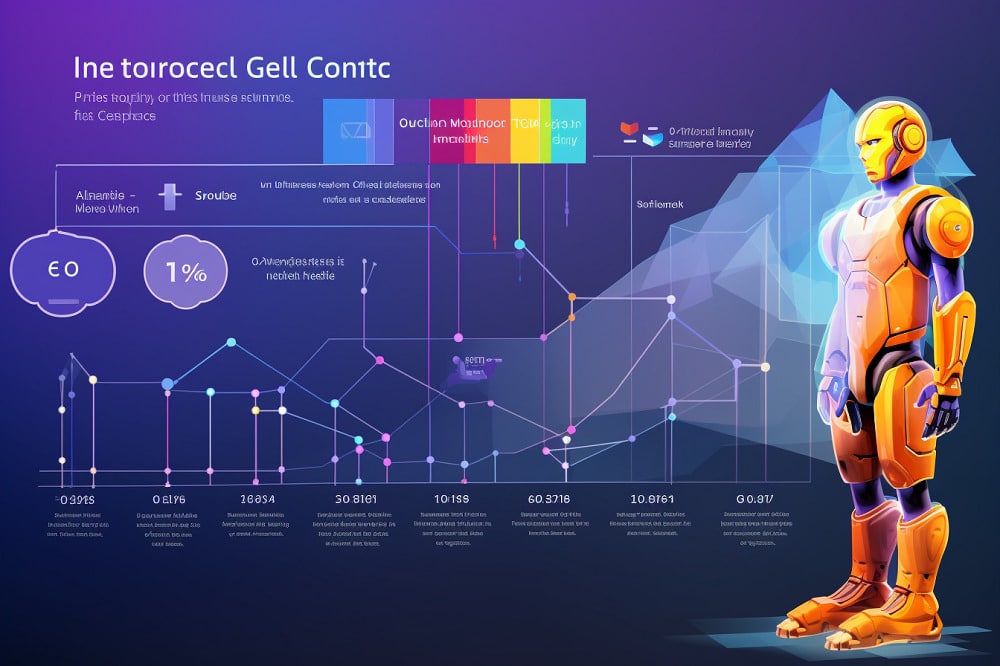
Fetch.ai Launches $10M Innovation Lab for AI Startups
Fetch.ai Unveils $10M Innovation Lab for AI Startups
Fetch.ai, a decentralized machine learning platform, has established an Innovation Lab in San Francisco. The lab is designed to support early-stage startups focused on developing AI agent solutions.
These AI agents are special software programs that use artificial intelligence to perform specific tasks or make decisions autonomously. The company is backing this initiative with a $10 million annual fund.
Each participating startup can receive up to $1 million, depending on the milestones it achieves during its development process. The funding approach emphasizes results, ensuring that the most promising and effective projects receive the necessary support to advance.
Humayun Sheikh’s Vision for Bridging AI Research and Market Gaps
Humayun Sheikh, CEO of Fetch.ai, emphasized the company’s commitment to bridging the gap between research and market applications. He stated that the goal of the Innovation Lab is to support projects that can deliver real-world advancements in various industries through the use of AI agents.
Fetch.ai aims to foster innovation and drive the adoption of AI technologies that can significantly impact the market. The AI agent market is rapidly growing, with forecasts predicting it will reach $88.1 billion by 2032. The Innovation Lab is open to legally registered US startups that already have a working prototype or a minimum viable product (MVP) that has been tested or validated in the market.
Fetch.ai’s Internship Incubator and Ambassador Club Initiatives
In addition to the Innovation Lab, Fetch.ai is introducing two complementary initiatives to engage the broader AI community: an internship incubator and an ambassador program. The internship incubator seeks candidates with a foundational understanding of decentralized technologies, AI, and machine learning, particularly proficiency in programming languages like Java, Python, or C++.
This program is designed to attract talent that can contribute to the development of AI agents. The Ambassador Club seeks to cultivate an innovative environment for projects at the new hub.
Ambassadors will organize hackathons, code nights, and workshops on AI agents, fostering a community of like-minded individuals dedicated to advancing the AI field. The company is looking for applicants with experience in community engagement, particularly those who have participated in organizing AI-related forums or meetups.
Fetch.ai’s efforts align with the broader trend of integrating AI with decentralized protocols, a space that has seen significant investment and interest in recent months.
China Accesses Banned US AI Chips
Meanwhile, China’s pursuit of advanced artificial intelligence (AI) technologies continues to push the boundaries of international regulations. Despite US restrictions on exporting high-level AI chips to China, recent findings suggest that state-affiliated Chinese entities are accessing these banned technologies through cloud services, particularly those provided by Amazon Web Services (AWS).
According to sources familiar with the matter, at least eleven Chinese organizations have used cloud services to bypass US export controls. These controls prevent China from obtaining advanced semiconductor chips, such as Nvidia’s A100 and H100 models. The US government banned the export of these chips, which are crucial for AI development, due to concerns over their potential use in enhancing China’s military AI capabilities.
Zhejiang Lab and Shenzhen University Lead in Bypassing AI Chip Bans
Among the organizations involved, Zhejiang Lab and Shenzhen University stand out. In April 2024, Zhejiang Lab, which is working on its large language model (LLM) (known as GeoGPT), disclosed in a tender document that it planned to spend 184,000 yuan (approximately $25,783) on AWS cloud computing services.
The lab reported that it could not achieve the necessary computing power using China’s local cloud services, such as Alibaba. Similarly, Shenzhen University allocated 200,000 yuan (about $27,996) to access AWS cloud servers powered by Nvidia’s A100 and H100 chips for an unspecified project.
US Tightens Control
Recall that the US embargo on these AI chips, particularly Nvidia’s A100 and H100 models, has been in place since September 2022. Further restrictions were implemented in October 2023 to include Nvidia’s slower A800 and H800 chips, which were initially developed for the Chinese market.
However, Chinese entities have found ways to maneuver around these restrictions, primarily through cloud services provided by companies like AWS and Microsoft. An AWS spokesperson emphasized that the company complies with all US laws, including trade regulations, when delivering services inside and outside of China.
However, the recent findings suggest that these regulations have loopholes that Chinese organizations exploit. Hence, Michael McCaul, the US House of Representatives Foreign Affairs Committee chair, has highlighted the need for stricter enforcement.
The study also uncovered that Chinese entities now target Microsoft cloud servers. For instance, Sichuan University documented its intention to purchase 40 million Microsoft Azure OpenAI tokens to develop a generative AI platform.




